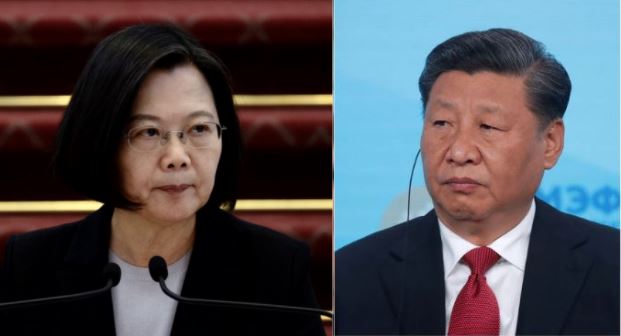Taiwan is set to ban video streaming services from Chinese tech giants Baidu and Tencent, thereby giving the Communist state another bolt out of the blue after getting bashed from the likes of India and the USA.
According to several media reports, Baidu’s iQiyi and Tencent’s WeTV— two of China’s most popular streaming services– had been “operating illegally” in the island country by partnering with local broadcasters and distributors to provide their video content through streaming services.
These companies were on the radar of the Taiwanese government for quite some time but the sledgehammer has been dropped now as part of a broader move by the government to ramp up scrutiny of mainland Chinese companies.
The banning of the two streaming apps was already a massive statement on its own but the Taiwan Ministry of Economic Affairs went a step ahead and announced that Taiwanese companies and individuals will be prohibited from providing services for OTT firms based in mainland China.
Taiwan had earlier banned the highly-controversial video-conferencing app ‘Zoom’ citing security threats.
In April, the Taiwan government had announced that public bodies should not use products with security concerns “such as Zoom”.
The Coronavirus pandemic has been a blessing-in-disguise for Taiwan. It was one of the first countries to have exposed China and since then has been landing incessant sucker punches on the Communist regime.
Reported by TFI, Taiwan’s cabinet had been planning to allocate more than NT$10 billion ($335 million) to entice foreign chipmakers to set up R&D facilities within the country, locally. The much-sought-after semiconductor technology has of late become a priceless commodity as the chip technology powers everything from smartphones to 5G base stations.
The little island nation of Taiwan is pursuing more foreign tech investments from multinational companies seeking to shift out their bases out of China. After the Coronavirus pandemic, big companies have been quietly jumping the sinking ship of China anticipating the failing market and the growing trade wars with Washington which is showing no signs of abetting.
Relations between Beijing and Taiwan have been souring ever since the election of Taiwan President Tsai Ing-wen in 2016, who was perceived by the Chinese government as being in favour of the island’s formal independence.
The mask-diplomacy of Taiwan amid the pandemic had brought the island country several brownie points and naturally, China was irked the most.
Washington has also moved closer to Taiwan. US Secretary of Health and Human Services Alex Azar’s historic visit last week was intended to convey President Donald Trump’s support for the democratic island.
India has already banned 59 Chinese espionage apps including Byte Dance owned Tik Tok. America has given an ultimatum to Tik Tok to sell its American operations to Microsoft and more recently American President Donald Trump came up with an executive order that dissuaded any American company to make the bed with highly popular super app WeChat. In a nutshell, WeChat which has over one billion users in Mainland China will not be available on Apple App Store or Google Play Store in the United States, nor will the advertisers be able to advertise on it.
China is paying for its misdeeds; the intricate espionage web that it had created around the world is being taken out one app at a time.
























